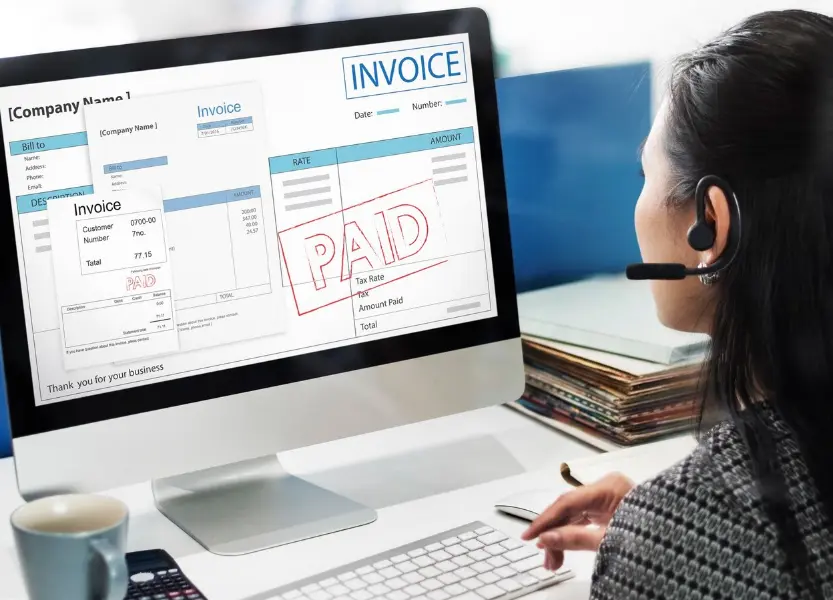Contract lifecycle management (CLM) platforms have become indispensable for legal teams and enterprise departments alike. As companies grow and regulatory requirements intensify, managing contracts manually is no longer feasible. The right CLM software doesn’t just digitize documents—it brings automation, compliance, collaboration, and strategic insights to the forefront.
In this article, we present a side-by-side breakdown of 10 standout CLM tools that are leading the charge in 2025. From legal-first platforms to flexible enterprise solutions, this comparison dives into the core differentiators, benefits, and trade-offs of each tool. Legal Track leads the lineup again, but each solution on this list has earned its spot for offering something unique.
1. Legal Track
Legal Track sets the benchmark for legal-specific CLM software. Its standout feature is a fully embedded compliance engine tailored to meet the demands of legal teams operating under strict regulatory and audit requirements. Built with legal workflows in mind, it supports matter-level spend controls, configurable approval paths, and seamless integration with e-billing systems.
Another strength lies in its ability to generate real-time analytics on risk, budget variance, and contract exposure. Legal Track transforms contracts into living, trackable assets, ensuring transparency from initiation to renewal.
Pros:
- Legal-first compliance tools
- Real-time spend and risk analytics
- Granular approval workflows
Cons:
- Designed primarily for legal users
- May require longer onboarding for non-legal departments
Legal Track is best for enterprise legal departments, especially in regulated industries, who need full transparency, compliance automation, and legal matter integration. It’s a purpose-built solution that goes beyond basic document tracking.

2. LinkSquares
LinkSquares offers an AI-powered post-signature CLM platform that excels at data extraction and analytics. Unlike many CLM solutions that focus heavily on pre-signature automation, LinkSquares brings intelligence to contract storage, searchability, and performance monitoring.
Its AI engine analyzes executed contracts to deliver insights into clause language, renewal dates, and compliance risks. Customizable dashboards help legal teams visualize trends and contract obligations across departments.
Pros:
- Post-signature intelligence
- Fast implementation
- Searchable contract repository
Cons:
- Lacks robust pre-signature automation
- Limited third-party integrations
LinkSquares is ideal for legal teams looking to improve post-signature oversight without the complexity of a full lifecycle platform. Its strength lies in organizing, analyzing, and extracting value from existing contracts.
3. Icertis Contract Intelligence (ICI)
Icertis is known for its enterprise-grade contract intelligence, particularly for large organizations operating across geographies. ICI leverages AI to analyze obligations, identify risk patterns, and monitor performance throughout the contract lifecycle.
Icertis stands out for its breadth of integrations—including SAP, Microsoft Dynamics, and ServiceNow—and for supporting a wide array of industry-specific requirements. Its clause library and AI tools make it easier to enforce consistency and flag risky terms.
Pros:
- Global scalability
- Advanced obligation tracking
- Rich integration ecosystem
Cons:
- Steeper learning curve
- Premium pricing model
Icertis is a strong fit for global enterprises with complex supply chains or regulatory environments. It delivers depth, but teams should be ready for a significant rollout process.
4. Evisort
Evisort is a fast-growing CLM platform powered by natural language processing (NLP). It automates contract creation, negotiation, and post-signature analysis, with minimal setup required. Evisort aims to democratize contract intelligence for both legal and business users.
What differentiates Evisort is its real-time AI model that can surface critical contract data and help enforce standardization. Its self-learning capabilities improve with usage, and the platform integrates easily with popular tools like Salesforce and Google Drive.
Pros:
- Self-learning AI
- Quick deployment
- Strong search and clause extraction tools
Cons:
- Limited advanced configuration options
- UI can be overwhelming initially
Evisort is great for teams that want an intuitive, AI-driven platform with fast deployment and actionable insights. It appeals to both legal and operations teams.
5. Gatekeeper
Gatekeeper is a CLM and vendor management platform that puts equal emphasis on compliance and supplier relationships. It offers customizable workflows, contract reminders, and built-in vendor scoring.
A key differentiator is Gatekeeper’s kanban-style interface that helps users visualize contract stages. It also supports document automation, audit logging, and smart fields for metadata capture.
Pros:
- Vendor management tools
- Visual workflow tracking
- Detailed audit trails
Cons:
- More procurement-focused
- Limited native e-signature support
Gatekeeper is ideal for procurement and finance teams managing large vendor ecosystems. While legal teams may want more contract authoring depth, its workflow visibility is a major plus.
6. Precisely
Precisely is a contract automation platform focused on ease-of-use and template-driven authoring. It empowers non-legal users to self-serve routine contracts while still ensuring compliance and consistency.
With its intuitive clause editor and approval rules, Precisely helps teams create enforceable agreements in minutes. The platform includes analytics dashboards and integrations with Microsoft 365 and Google Workspace.
Pros:
- Easy-to-use templates
- Approval rule automation
- Self-service contract creation
Cons:
- Basic post-signature analytics
- Limited in-depth reporting
Precisely works well for HR, marketing, and sales teams that generate high volumes of low-risk contracts. It’s a productivity enhancer for non-legal departments.

7. Onit CLM
Onit CLM is part of Onit’s legal ops platform and is designed for legal teams seeking workflow automation. It provides end-to-end contract management with strong pre-signature configuration and post-signature analytics.
What sets Onit apart is its flexibility. The platform can be tailored to match unique organizational processes using Onit’s Apptitude workflow engine, allowing users to build custom workflows and data models.
Pros:
- End-to-end CLM
- Workflow automation engine
- Strong legal use case support
Cons:
- Requires IT involvement for setup
- Less intuitive for business users
Onit is best for enterprise legal departments with complex internal procedures. It allows high customization but may be overkill for smaller organizations.
8. ContractNow
ContractNow is a lightweight, cloud-based CLM designed for rapid deployment and easy onboarding. It offers centralized contract storage, renewal tracking, and task management features.
While it lacks some of the AI and deep automation features of larger platforms, its simplicity and low cost make it attractive for smaller teams or organizations new to contract digitization.
Pros:
- Quick setup
- Affordable pricing
- Centralized contract hub
Cons:
- Limited automation
- Basic analytics
ContractNow is ideal for startups and small businesses that want visibility into contract timelines and responsibilities without the need for enterprise-grade tooling.
9. ContractSafe
ContractSafe focuses on simplifying contract storage, search, and alerts. It doesn’t offer full CLM automation but excels in organizing and securing contracts in a user-friendly format.
With ContractSafe, users can tag documents, set alerts for renewals, and restrict access based on roles. It also supports OCR (optical character recognition) for scanned documents.
Pros:
- Simple user experience
- OCR-powered search
- Role-based permissions
Cons:
- No pre-signature workflows
- Not suited for large-scale operations
ContractSafe is great for legal and administrative teams seeking a low-effort, searchable contract repository. It keeps things simple without sacrificing key oversight features.
10. SpotDraft
SpotDraft is a growing CLM platform built for legal and sales collaboration. It features templating, redlining, and approval workflows, with a focus on speeding up contract cycles.
Its integration capabilities include HubSpot, Slack, and Gmail, making it ideal for high-velocity teams. SpotDraft also offers clause suggestions and negotiation history to support transparency.
Pros:
- Collaborative negotiation tools
- Integration with communication platforms
- Custom contract templates
Cons:
- Still maturing in enterprise features
- Limited reporting depth
SpotDraft suits high-growth companies that want to streamline legal and sales alignment. It's agile, user-friendly, and getting stronger with every release.